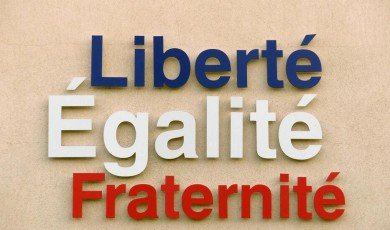
Supporting Immigration and Asylum Policy: The Importance of French Legal Translation Services
Explore how professional French legal translation services are shaping immigration and asylum policy, fostering democratic participation, and ensuring legal protection for migrants in France’s dynamic political landscape.
Introduction: Immigration in France and the Legal Language Barrier
France has long stood as a beacon of democracy, human rights, and French language culture in Europe. In an era marked by complex global migration, the country's approach to immigration and asylum policy is under constant scrutiny. From high-profile electoral debates to grassroots civic engagement, immigration remains a pivotal theme shaping French politics. Yet, beneath the surface of legislative reforms and public opinion lies a critical, but often overlooked, challenge: the language barrier.
Legal proceedings, asylum applications, and administrative requirements in France are typically conducted exclusively in French. For countless migrants and asylum seekers arriving from diverse linguistic backgrounds, comprehending these documents can be daunting. The stakes are high, as even a minor misunderstanding can have life-altering consequences—from denied asylum requests to the loss of basic rights. This is where French legal translation services assume a role of unparalleled importance, not only in upholding procedural fairness but also in reinforcing the foundational values of the French Republic.
The Political Context: Democracy, Communication, and Participation
France’s political sphere is renowned for its robust democratic traditions. Critical issues such as the right to vote, the role of youth in civic engagement, and the impact of televised debates are discussed and debated with great fervor. As society becomes more diverse, policies on immigration and asylum are increasingly linked to the evolution of political communication and the imperative to foster inclusive citizen participation.
Effective communication—especially legal communication—is fundamental to democratic inclusion. When individuals seeking to integrate into French society are confronted with legal documents, court rulings, or asylum application forms written in complex legal French, true democratic participation becomes unattainable without proper translation. This holds particular relevance in today's digital age, where misinformation, language gaps, and cultural misunderstandings can easily undermine trust in institutions.
French Legal Translation Services: Bridging the Gap
Professional French legal translation services are indispensable for both immigrants and policy-makers. Their influence extends across several vital areas in the immigration and asylum process:
- Accurate Asylum Applications: Asylum seekers must often recount traumatic events in precise detail within tight legal frameworks. Expert translators ensure that their narratives are faithfully rendered, preventing legal misinterpretation.
- Navigating Administrative Procedures: From visa paperwork to residency permits, the French bureaucracy can be labyrinthine. Certified translation services guarantee that applicants fully understand their rights, responsibilities, and deadlines.
- Access to Justice: Should a dispute arise—such as an appealed rejection or a claim of discrimination—access to translated legal opinions and court documents is crucial. Without this, migrants are effectively voiceless in the system.
- Policy Implementation: For lawmakers and public servants, translated documents aid in disseminating vital policy updates to a broader segment of the population, supporting compliance and societal integration.
When translation quality falters, the ramifications can be severe: wrongful denials, missed hearings, and even deportations. By contrast, well-executed translation upholds the rule of law, protects human rights, and strengthens the legitimacy of France’s immigration system.
Enhancing Political Communication and Civic Participation
In a society committed to equality and liberty, legal translation services also help to democratize political communication. Consider the importance of multilingual civic resources during nationwide legislative campaigns or referendums targeting reforms in immigration policy. Well-adapted translations help new residents understand the electoral process, the value of blank votes, and the nuances of policy debates.
Furthermore, empowering newcomers with access to essential political information in their native languages encourages active participation, whether by voting, attending debates, or engaging in digital forums. This not only broadens democratic engagement but also counteracts the alienation that too often fuels disinformation and distrust.
The Digital Challenge: Translation in the Era of Online Communication
France’s political communication landscape is rapidly evolving amid the digital revolution. Politics now thrives not only in parliament and televised studios but also on social media platforms and instant messaging channels. Young people, immigrants, and asylum seekers are engaging with political content through new digital means. The translation of legal and electoral content for online dissemination thus becomes an urgent necessity.
High-quality digital translation ensures consistency, clarity, and accessibility in a fast-paced, fragmented media environment. Organizations leveraging professional French legal translation services can provide migrants and their advocates with up-to-date resources, legal updates, and explanatory guides, effectively narrowing the digital divide that often isolates vulnerable communities.
Case Studies: Impactful Outcomes Through Translation
Let’s consider concrete examples that highlight the transformative power of French legal translation services:
- Refugee Protection: A Congolese asylum seeker, unable to articulate the severity of past persecution in French, received tailored translation assistance for her application, resulting in a successful asylum grant and integration into the French workforce.
- Civic Education: A Paris-based NGO deployed multilingual translation teams to help immigrant youths understand voting rights, boosting turnout and informed participation in municipal elections.
- Legal Redress: A family wrongly denied residency due to a mistranslation in their application accessed professional translation services, leading to a policy reversal and restoration of their residency.
Each success story reinforces a central premise: meticulous legal translation does not merely serve administrative efficiency. It is an instrument of justice and a cornerstone of participatory democracy.
Choosing Reliable French Legal Translation Services
The complexity and sensitivity of immigration and asylum policy necessitate high standards of professionalism and confidentiality in translation. Key factors in selecting a service provider include:
- Legal Expertise: Translators must possess specialized knowledge of French legal terminology and evolving immigration laws.
- Certification: Certified translations are often mandated by French courts and administrative bodies.
- Cultural Competence: A nuanced understanding of the applicant’s cultural and linguistic background ensures greater accuracy.
- Proven Track Record: Reputable agencies will provide client testimonials and demonstrate experience with French government procedures.
As a trusted solution, working with providers who specialize in French legal translation services offers peace of mind to both applicants and institutions, contributing to a more robust, humane immigration system.
Conclusion: Building a More Inclusive French Democracy
The role of French legal translation services in supporting immigration and asylum policy extends far beyond technical language conversion. These services are foundational to legal equity, political integration, and the preservation of democratic values within France. By breaking down linguistic barriers, they empower newcomers to participate meaningfully in society, understand their rights and responsibilities, and build trust in public institutions.
In an era marked by polarized elections, fast-evolving digital communication, and the need for nuanced political analysis, effective legal translation is more than a matter of logistics—it is a vital instrument of citizenship and justice. For political analysts, lawmakers, and advocates committed to a more open and inclusive Republic, investing in high-caliber French legal translation services is not just a bureaucratic necessity; it is a pledge toward a more equitable and participatory France.
As we look toward the future of French immigration and democracy, let us recognize the power of language—translated with care and expertise—as a bridge to inclusion, engagement, and collective progress.








